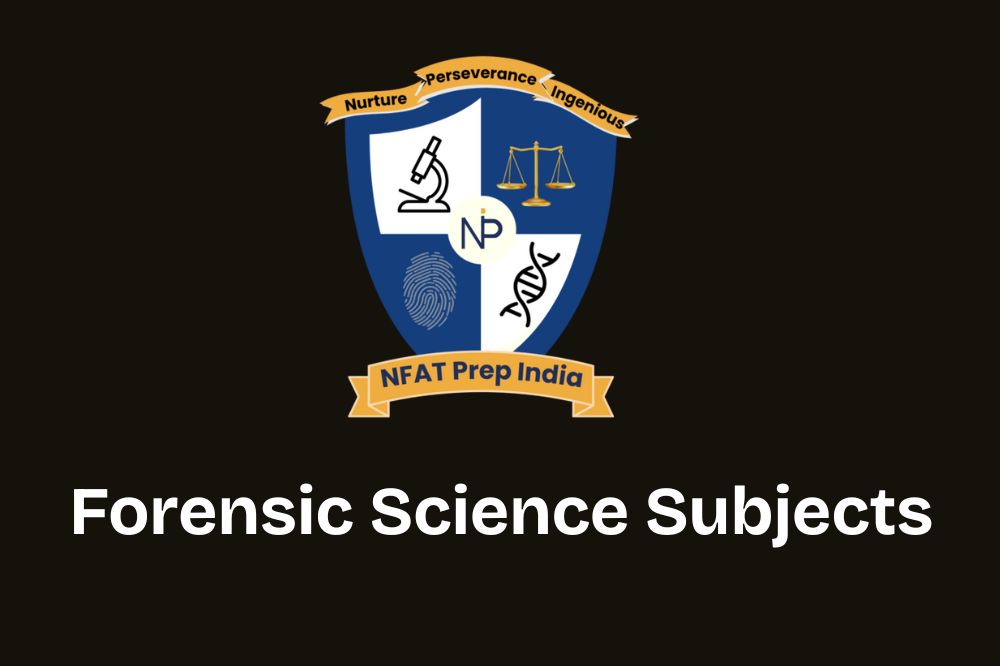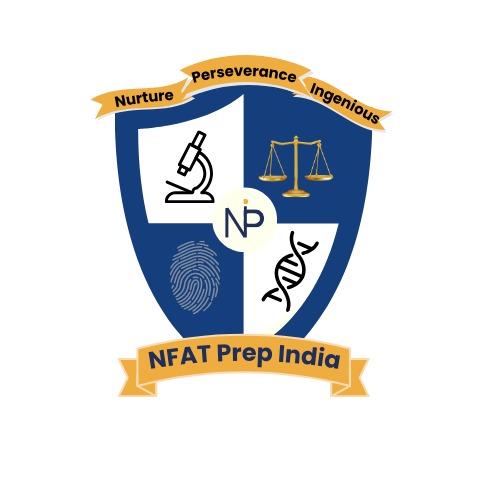Forensic Science Subjects: A Complete Guide for Students

Forensic science is a dynamic field that applies scientific methods to criminal investigations. Understanding forensic science subjects is essential for anyone pursuing a career in crime analysis, forensic laboratories, or forensic research. In this guide, we’ll explore the core forensic disciplines and their relevance in solving complex cases.
1. Introduction to Forensic Science
Forensic science plays a crucial role in solving crimes and providing evidence in legal cases. This field integrates principles from biology, chemistry, physics, psychology, and law, making it highly interdisciplinary. Forensic science subjects equip students with the technical expertise required to examine crime scene evidence and present findings in court.
2. Core Forensic Science Subjects
A. Forensic Biology
- DNA analysis – Identifying suspects through genetic profiling
- Bloodstain pattern analysis – Studying blood splatter in crime scenes
- Hair and fiber examination – Tracing suspect movements
- Microbial forensics – Using bacteria and viruses in criminal investigations
B. Forensic Chemistry
- Toxicology – Detecting poisons and drugs
- Explosives analysis – Investigating bomb residues
- Trace element detection – Studying chemical composition of evidence
- Ink and paint analysis – Identifying fraudulent documents and altered objects
C. Forensic Physics
- Ballistics – Firearm and bullet trajectory analysis
- Accident reconstruction – Investigating vehicle crashes
- Sound and vibration analysis – Detecting altered recordings in legal cases
- Forensic imaging – Studying light and optics for evidence processing
D. Forensic Toxicology
- Poison detection – Identifying harmful substances in victims
- Drug influence studies – Assessing intoxication in suspects
- Postmortem toxicology – Analyzing substances found in deceased individuals
E. Forensic Psychology
- Criminal profiling – Understanding suspect behavior
- Lie detection – Using polygraph tests to verify statements
- Victimology – Examining the psychological impact of crimes
- Behavioral analysis – Assessing criminal intent
F. Digital Forensics
- Cybercrime investigation – Tracking hackers and fraudsters
- Data recovery – Restoring deleted digital evidence
- Network security – Studying hacking techniques and protection strategies
- Mobile forensics – Extracting phone data for investigations
G. Forensic Anthropology
- Skeletal analysis – Identifying human remains
- Facial reconstruction – Creating digital or physical models from skulls
- Age and gender estimation – Assisting in missing person cases
H. Criminal Law and Forensic Science
- Evidence collection – Proper methods for handling crime scene samples
- Courtroom procedures – Presenting forensic evidence in trials
- Legal aspects of forensic investigations – Understanding forensic applications in law
3. Specializations in Forensic Science
Students can specialize in various forensic disciplines, such as:
- Forensic Odontology – Dental evidence in criminal cases
- Forensic Serology – Blood and fluid analysis
- Forensic Document Examination – Handwriting and fraud detection
- Wildlife Forensics – Investigating crimes against endangered species
- Forensic Accounting – Detecting financial fraud
4. Career Opportunities in Forensic Science
Graduates in forensic science subjects can work in:
- Crime laboratories – Analyzing evidence for law enforcement
- Government forensic agencies – Supporting investigations
- Private forensic firms – Handling fraud cases
- Academic and research institutions – Conducting forensic advancements
5. FAQs About Forensic Science Subjects
Q1. How many subjects are in forensic science?
Forensic science covers multiple subjects, including forensic biology, chemistry, physics, toxicology, psychology, digital forensics, forensic anthropology, and criminal law. These subjects form the foundation of crime investigation and forensic analysis.
Q2. What subjects are best for forensic science?
If you’re planning to study forensic science, subjects like biology, chemistry, and physics provide a strong scientific foundation. Additionally, criminology, psychology, and law are crucial for understanding the legal aspects of forensic investigations.
Q3. How can I study forensic science after 12th?
To pursue forensic science after 12th, students can enroll in a Bachelor’s degree in Forensic Science. Various universities offer specialized forensic programs covering crime scene analysis, forensic toxicology, ballistics, and digital forensics.
Q4. Is forensic science a good career option?
Yes! Forensic science is a rewarding career with high demand in crime labs, law enforcement agencies, and private investigation firms. It offers job security and diverse specialization opportunities.
Q5. Where can I find the best forensic science courses?
For detailed course guides, expert study materials, and forensic career tips, visit NFAT PREP INDIA your go-to source for forensic education and training.
6. Conclusion
Mastering forensic science subjects provides students with essential knowledge to pursue careers in crime investigation and legal forensics. Whether focusing on forensic biology, forensic chemistry, forensic toxicology, or forensic psychology, students can develop expertise that contributes to criminal justice.
For an in-depth guide to forensic science courses and study materials, visit NFAT PREP India—your trusted resource for forensic education.
Explore forensic careers & study guides at NFAT PRE India today!

One thought on “Forensic Science Subjects: A Complete Guide for Students”